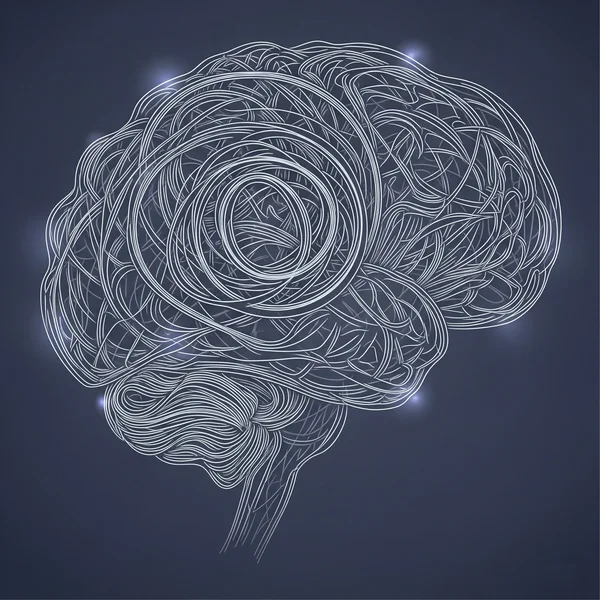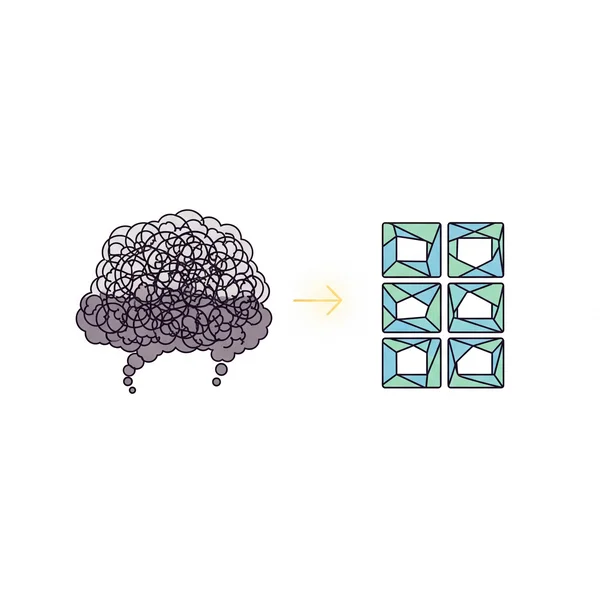"Do I Have OCD?" A Guide to Signs & Our Free Test
July 6, 2025 | By Samuel Griffin
Are you caught in a cycle of unwanted thoughts and repetitive behaviors that you can't seem to shake? Do I have OCD? This is a question that brings millions of people to search engines every year, seeking clarity and peace of mind. You might feel exhausted, misunderstood, or even ashamed of the thoughts and urges that dominate your day. Please know, you are not alone, and seeking understanding is a courageous first step. This guide is here to help you recognize the potential signs of Obsessive-Compulsive Disorder (OCD) and show you how you can gain initial insights through a confidential OCD screening test.

What is OCD, Beyond the Common Stereotypes?
When many people hear "OCD," they often picture someone who is exceptionally neat or washes their hands frequently. While these can be symptoms, they represent a very narrow and often inaccurate stereotype of a complex condition.
So, what is OCD in reality? Obsessive-Compulsive Disorder is a mental health condition characterized by two core components: obsessions and compulsions. It’s not a personality quirk or a preference for order; it's a genuine neurological condition that can cause significant distress and interfere with daily life. Understanding this distinction is the first step toward getting the right perspective on what you might be experiencing.
The Two Pillars of OCD: Obsessions vs. Compulsions

To truly answer the question, "Am I OCD?", it's essential to understand its two main pillars. OCD creates a vicious cycle where obsessive thoughts trigger intense anxiety, and compulsive behaviors are performed to temporarily relieve that anxiety.
Understanding Obsessions: The Unwanted Intrusive Thoughts
Obsessions are not just everyday worries. They are persistent and intrusive thoughts, images, or urges that feel unwanted, and out of your control, and cause significant anxiety or distress. You might recognize that these thoughts are irrational, but you struggle to dismiss them.
Common examples of obsessions include:
- Fears of Contamination: A constant worry about germs, dirt, or sickness that feels excessive.
- Unwanted Aggressive or Taboo Thoughts: Intrusive thoughts about harming yourself or others, or thoughts that go against your religious or moral beliefs.
- Need for Symmetry and Order: An intense feeling that things must be "just right," perfectly aligned, or symmetrical, causing distress if they are not.
- Persistent Doubts: Repeatedly questioning if you've locked the door, turned off the stove, or accidentally harmed someone while driving.
Understanding Compulsions: The Rituals to Relieve Anxiety
Compulsions are the response to obsessions. They are repetitive behaviors or mental acts that a person feels driven to perform to reduce the anxiety caused by an obsession or to prevent a feared event from happening. However, the relief is only temporary, which reinforces the cycle.
Common examples of compulsions include:
- Washing and Cleaning: Excessive hand washing to the point of skin being raw, showering for hours, or cleaning the house in a ritualistic way.
- Checking: Repeatedly checking locks, appliances, emails, or that you haven't made a mistake.
- Counting and Arranging: A need to count things (like steps or objects) or arrange items in a specific, rigid way.
- Mental Rituals: Silently repeating words or prayers, mentally "undoing" a bad thought with a good one, or reviewing events in your head to ensure you did nothing wrong.
If this cycle of obsessions and compulsions sounds familiar, a structured assessment can provide more clarity. That's precisely why tools like an online OCD test were developed.
How a Free and Confidential OCD Test Can Help
Wondering how to get tested for OCD? While a formal diagnosis must come from a qualified healthcare professional, a screening tool is an excellent and accessible first step. A scientifically-based OCD screening test provides a private, pressure-free way to evaluate your symptoms against established psychological criteria.
Here’s how it helps:
- Provides Clarity: It helps you organize your experiences into a structured format, giving you a clearer picture of your symptom severity.
- Offers a Starting Point: The results can be a valuable starting point for a conversation with a doctor or therapist. It gives you concrete information to share.
- It’s Accessible and Private: You can take the test from the comfort of your own home, completely free and confidentially.
Ready to see where you stand? Take our free, confidential OCD test now to better understand your thoughts and behaviors.

Your First Step Towards Clarity and Understanding
Recognizing that your thoughts and behaviors might be signs of OCD is a significant and empowering step. It's the beginning of a journey toward understanding, not a label to fear. By learning about the symptoms and utilizing tools designed to help, you are taking control.
Remember, a screening is not a diagnosis, but it is a powerful tool for insight. It can be the catalyst that helps you seek the right support and move toward a life with less anxiety and more freedom.
Frequently Asked Questions About OCD Tests
Is this online OCD test a professional diagnosis?
No, it is not. This tool is a self-screening test designed for educational and informational purposes only. It can help you identify potential symptoms and their severity, but it cannot replace a comprehensive evaluation by a qualified mental health professional, such as a psychiatrist or psychologist, who can provide a formal OCD diagnosis.
What should I do if my test results indicate a high level of OCD symptoms?
If your results suggest a significant level of symptoms, we strongly recommend that you share and discuss these findings with a healthcare professional. They can conduct a thorough assessment and discuss appropriate next steps, which may include therapy (like Exposure and Response Prevention - ERP) or other treatment options. Think of this test as a helpful document to start that important conversation. You can find more information about seeking professional help on our resources page.
Is the ocdtest.net screening tool truly free and confidential?
Yes, absolutely. We believe that everyone deserves access to reliable mental health resources. Our OCD test is completely free, and we do not require you to register or provide any personally identifiable information. Your privacy and trust are our top priorities.